Teardrops on My Synthesizer: Taylor Swift Returns to Stardom with Tenth Studio Album
At the stroke of midnight Oct. 21, Taylor Swift released her tenth studio album, “Midnights,” which quickly received critical acclaim and became Spotify’s most streamed album in a single day. It was her first original music since the 2020 release of “Folklore” and its accompanying album, “Evermore.”
“Midnights” serves as a conceptual album that chronicles “the intensities of that mystifying, mad hour.” On Instagram, in a post announcing the album’s release, Swift described it as a “collection of music written in the middle of the night, a journey through terrors and sweet dreams. The floors we pace and the demons we face.”
Produced with Swift’s long-time friend Jack Antanoff and her boyfriend of seven years Joe Alwyn, “Midnights” represents a strong shift into synth-pop that very few fans anticipated. Here’s my opinion of the album’s thirteen original tracks.
“Lavender Haze,” arguably the album’s most innovative song, incorporates jazzy hip-hop hooks and Swift’s own falsetto to create a moody yet magnetic opening track. The song shows Swift’s rejection of media scrutiny in the context of her personal relationships. Its auto tune was occasionally overwhelming, especially in the context of her preceding albums that focused more on lyricism and low-key production. Overall, while the song’s experimentation was at times overly aggressive, it still set the stage for Swift’s latest era of artistic expression. (6/10).
“Maroon,” the album’s second track, clearly displays the strength of Swift’s songwriting ability. In its chorus, she uses maroon as a metaphor to illustrate memories of a romantic relationship, effortlessly employing imagery to connect concepts like Burgundy wine, scarlet blush, and cherry lipstick. Its title also alludes to her fourth studio album, “Red.” This connection seemingly symbolizes Swift’s newfound maturity and increased emotional vulnerability. Simply put, “Maroon” was one of the few songs on the “Midnights” album to fully capture the iconic Taylor Swift sound found on albums like “1989” without sacrificing the captivating lockdown-era lyricism found on “Folklore.” (9/10)
“Anti-Hero” is the album’s biggest hit. Its catchy chorus claims that “It’s me / Hi / I’m the problem / It’s me,” and the song has already taken over TikTok trends as well as the Billboard Hot 100. While its use of direct language may catch some listeners by surprise, it works well for Swift in this context as she explores her intense self-loathing and the complex notion of “not feeling like a person.” “Midnights” is not a particularly happy album, even if its songs have an upbeat tempo. It’s about thoughts that keep you up at night, and “Anti-Hero” dives deep into image analysis in a way that should serve as an inspiration to other artists. (7/10)
“Snow on the Beach” includes backing vocals from Lana Del Rey, the only other artist who is featured on the album. The primary criticism of this song is that the featured artist was largely excluded from the main chorus and wasn’t awarded a verse to sing without Swift. The dreamy pop ballad details an unlikely romantic encounter, which is compared to snow falling on the beach. The instrumental includes strings that are reminiscent of hazy holiday music, creating a majestic mood that draws the listener into the song, but its main metaphor feels quite forced, and this song would have benefitted from a greater inclusion of Lana Del Rey’s voice. (5/10)
“You’re On Your Own, Kid” stands out as a modern masterpiece, incorporating the story of Swift’s upbringing into a breathtaking ballad. It chronicles her early entrance into stardom and turbulent transition into adulthood. Significantly, the song also includes a direct reference to her eating disorder, which she first discussed in her 2020 Netflix original film “Miss Americana.” In the midst of it all, she skillfully balances the autobiographical aspects of the track with her signature narrative structure. By the end of the song, Swift realizes that she is, indeed, on her own, but she also wholeheartedly embraces friendship and nostalgia in a way that quickly warms the heart. The musical crescendo compliments her lyrical delivery, easily making “You’re On Your Own, Kid” the album’s best track (10/10).
“Midnight Rain” has a startling and unidentifiable introduction that is actually Swift’s own auto tuned voice. She sings about differing directions that are destroying a romantic relationship, with the song’s chorus commenting that “He wanted a bride / I was making my own name / Chasing that fame / He stayed the same / All of me changed like midnight rain.” Overall, this track failed to make a lasting impression, and even though it wasn’t the worst song on the album, its reliance upon excessive autotune and production edits prevented Swift’s vocal strength from standing out. (6/10)
“Question…?” begins with an interpolation of Swift’s 2014 song “Out of the Woods.” Its main theme asks a series of rhetorical questions about another person’s alleged infidelity, and it is also heavily driven by a dream pop sound. In many ways, “Question… ?” is more of the same synthesizer, led by lackluster lyrics and a quickly forgettable chorus. (4/10)
“Vigilante ****” is an empowering anthem that serves as Swift’s latest track targeted towards her enemies. The song’s sleek and sophisticated tone sharpens into a vengeful declaration that proclaims “I don’t dress for women / I don’t dress for men / Lately I’ve been dressing for revenge.” The track’s anger may have been slightly overplayed, however, and Swift’s vocals lacked range in what could have been a much better song. (6/10)
“Bejeweled” is a glamorous affirmation of Swift’s self worth. While its lyrics are a bit juvenile at times, the song’s ability to spark viral TikTok trends proves its commercial value. Artistically speaking, the track is without a clear creative vision, and its lyricism just doesn’t meet the standard that has been set by previous Taylor Swift songs. (5/10)
“Labyrinth” is one of the album’s most vulnerable tracks. It details the feeling of falling back into love after a relationship has already ended. The song incorporates synthesizers, electric piano, and autotune to create a mystical and memorable sound, which is also fueled by Swift’s vocal delivery. One of the most incredible examples of lyricism from the track is “You know how scared I am of elevators / Never trust it if it rises fast / It can’t last.” This comparison creates tension within the narrative structure of the song, which is then resolved in the chorus when Swift fully recognizes her new feelings. (9/10)
“Karma” is another hit song that failed to meet its high expectations. While the track’s catchy chorus may appeal to a wide variety of audiences, the lyricism falls flat, especially when compared to Swift’s previous two studio albums. The song stuffs several metaphors into its main theme, comparing karma to Swift’s boyfriend, the breeze in her hair, a cat, a god, a queen, and an acrobat. This weakens her songwriting and creates an unexpectedly immature musical production that lacks the emotional depth of other tracks. With all of that being said, its dance party potential makes up for the lack of storytelling, earning it an average radio-hit rating. (7/10)
“Sweet Nothing” is a slow love song driven by saxophone and an electric piano. It echoes earlier disco ballads and emulates emotional tracks on other albums like “Lover.” The song focuses on the most mundane aspects of Swift’s love affair with Joe Alwyn, juxtaposing them with the attention paid to her public profile. Overall, this track is one of the album’s stronger songs, but it definitely lacks the potential to break through into the public consciousness that is shared by some of the album’s other hits. (7/10)
“Mastermind” is the album’s final track and explores Swift’s alternative perspective on fate and the role that it plays in romantic relationships. In contrast to earlier tracks such as “invisible string” from “Folklore,” Swift claims that her own actions have led to the success of her relationships, as opposed to another force. The song incorporates synthesizer sounds and Swift’s secret admission of “cryptic and Machiavellian” habits that dictate her personal and professional actions. She seemingly engages in a personal confession, breaking the fourth wall and engaging with each listener directly. Once again, the lyrical mastermind Taylor Swift has provided her audience with yet another impressive track. (9/10)
Three hours after the album’s original release, Swift released seven more songs, quickly dubbed them “3AM tracks.” Overall, I think they strongly compliment the album’s original idea, even if they operate in a totally separate conceptual space. Two of these songs— “Bigger Than The Whole Sky” and “Would’ve, Could’ve, Should’ve” — quickly caught my ear.
“Bigger Than The Whole Sky” is a beautiful ballad that explores personal loss and has been recognized for its implicit lyrical references to miscarriages, generating a widespread social media trend through which individuals have been able to share their heartbreaking stories. Meanwhile, “Would’ve, Could’ve, Should’ve” is an upbeat pop anthem that reflects upon Swift’s early romantic endeavors. The song quickly crescendos into a bittersweet bridge in which Swift implores the targeted audience to “Give me back my girlhood / It was my first.” Fans quickly connected this song’s concept to “Dear John,” from her third studio album “Speak Now,” given their similar subject matter.
Taylor Swift will soon be embarking on her first concert tour since 2018. Opening in Glendale, Arizona, March 18, 2023 and entitled the “The Eras Tour,” Swift has advertised the experience as “a journey through the musical eras of [her] career (past and present!)” Tickets will be sold starting Nov. 14. Additionally, Swift is also expected to release a rerecording of “Speak Now” in the coming months.
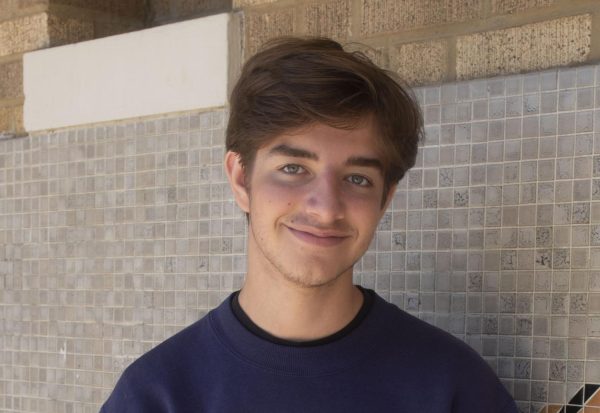



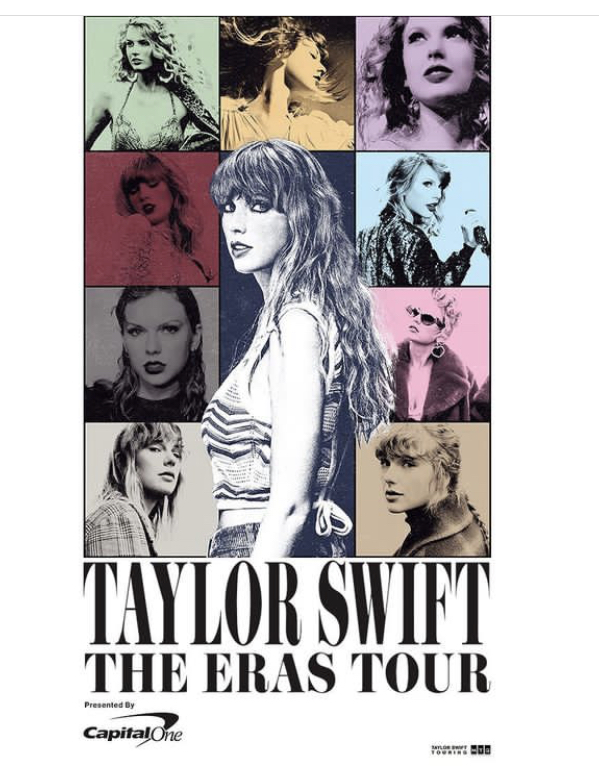

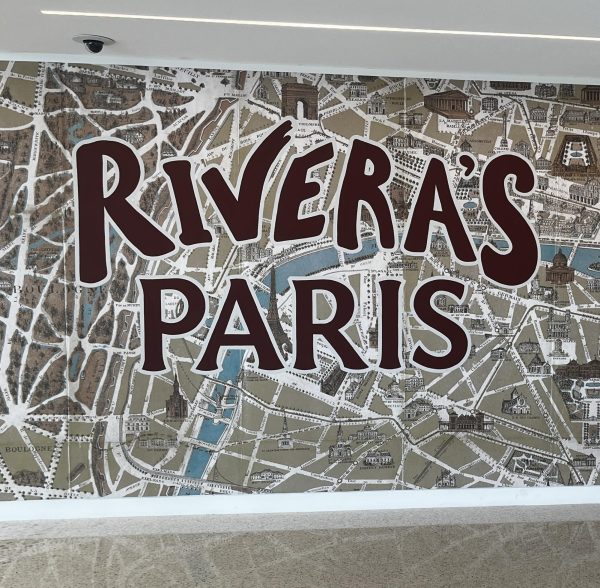
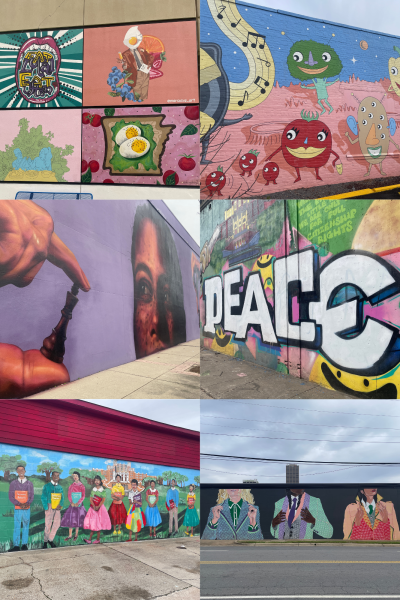
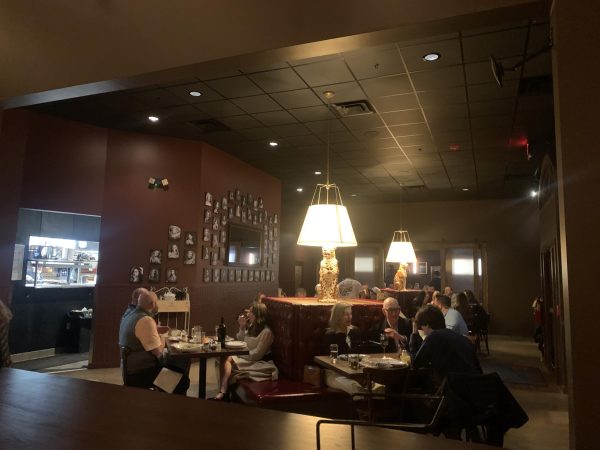
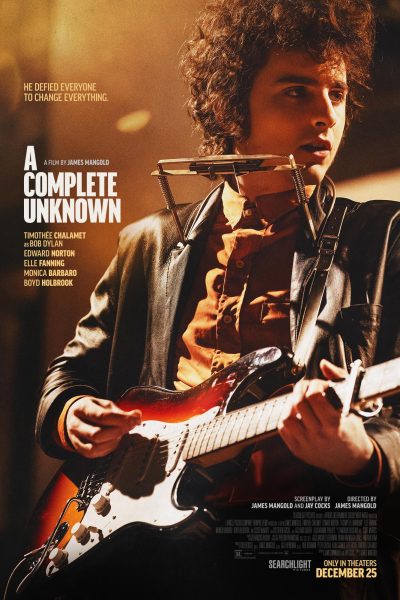

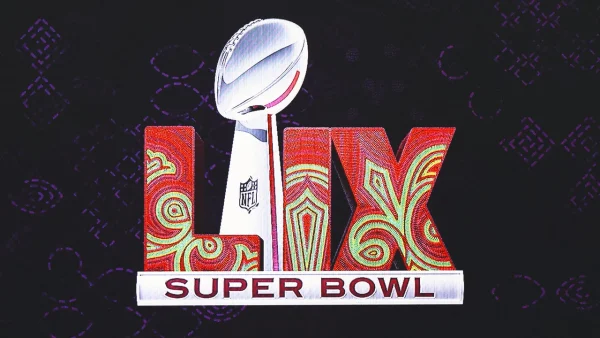

bess • Nov 4, 2022 at 11:26 am
Based